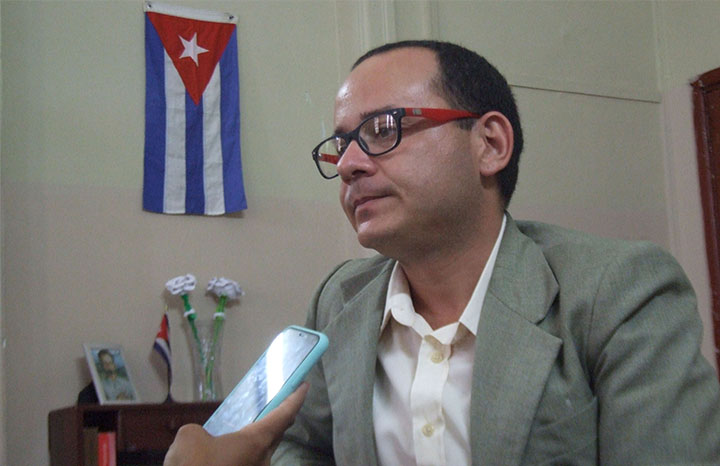
The preliminary draft of the Code of Children, Adolescents and Youth is currently in the process of popular consultation, and the debates in Cuban pre-university institutes (IPU) are essential to ensure these age groups a more effective and fairer protection of their rights.
By the way, Cecilia, Yerdani and Fabio are three teenagers who are in tenth grade at the IPU Tomas David Royo Valdes, in the capital's Vedado district, and they decided to talk exclusively to the Cuban News Agency to share their views on the legislation.
On rights: We are all important!
Cecilia Rodriguez de la Torre recognized the relevance of having the same protection in all environments regardless of race, sex and gender, starting with the family.
In her case, her opinion was always respected and she had the support of the people closest to her: “I come from a family of artists and I also want to be one, they are very open to any idea I have”.
For Fabio Corujo Baeza, the Code is necessary, because not always adults allow the youngest members of the family to express themselves because they are the youngest in the family, when in fact any criterion is valid.
“Both at home and at school my opinion has always been respected and I have never been a victim of discrimination, but it is not the same with all my contemporaries,” he added.
Fabio said that the Code cannot fail to protect adolescents and respect differences.
Yerdani Sotolongo Salazar pointed out that within his family, his opinion is always taken into account, but at school it is not the same way.
“My mother gives me space and privacy, and although I have never been discriminated against in my school, they do not always give voice to my words,” he said.
What do young people have to say about entering the workforce at an early age?
There are young people who live with their grandparents, for example, and need a job in order to generate extra income, be independent and help out at home, and despite their youth and school age, they could well combine both responsibilities if they wish, Cecilia explained.
If the adolescent is in a position to do so, then the law should protect that right, because they have the right to choose whether to work or continue studying, he concluded.
Fabio considers it important to incorporate this aspect of work into the law, since many young people face a complex family situation every day.
"Sometimes one salary is not enough to support us all. In addition, decision-making is also reflected in that sense," he added.
Meanwhile, Yerdani assured that if he is currently attending pre-university studies it was because he chose to do so, but he is clear that when he finishes the twelfth grade he will start working to help his mother, because he is an only child.
“If young people want to have a job before the age of 18, there should be a law that protects that right; many do not like to study and that guarantee could also prevent them from being on the streets acting inappropriately,” he said.
In view of the vulnerability of many families and the current complex situation in Cuban society, which the country's institutions are trying to eradicate every day, the three interviewees agreed that economic scarcity is not a reason to commit any crime or use drugs.
“We want that policy to be more like our young people.”
Luis Alberto Rodriguez Alfonso, director of the pre-university, stated that the preliminary draft has been analyzed in morning sessions, discussion and reflection shifts; dissemination murals have been created and also digital platforms to be more in tune with the youth, because that is what is aspired to.
“They are the ones to whom it is addressed and we want that policy to be more like our youth, our children and our adolescents,” he stressed.
Rodriguez Alfonso explained that the IPU Tomas David Royo Valdes, with an enrollment of 475 students, which reflects a clear diversity.
There are adolescents diagnosed with Attention Deficit Hyperactivity Disorder (ADHD), with different religious beliefs, skin color and gender, however, they were inserted to all activities and to the center in general.
It would be impossible to talk about educational inclusion without mentioning ADHD, and he assured that they are very intelligent students, but require the necessary time to effectively develop their abilities.
The future code not only reflects a commitment to the well-being of new generations but also lays the groundwork for a more just and inclusive society.
As progress is made towards its adoption, it is essential that all stakeholders - families, educators and authorities - unite in the defense and promotion of these rights to ensure that every child and adolescent can grow up in a safe and equitable environment.
The letter of the Preliminary Draft of the Code of Children, Adolescents and Youth is published on the official website of the Ministry of Education of Cuba, available for downloading in PDF format, and for issuing criteria and suggestions.
Sidebar

 Agencia Cubana de Noticias
Líder en información nacional
Agencia Cubana de Noticias
Líder en información nacional








Nos reservamos el derecho de no publicar los comentario que incumplan con las normas de este sitio